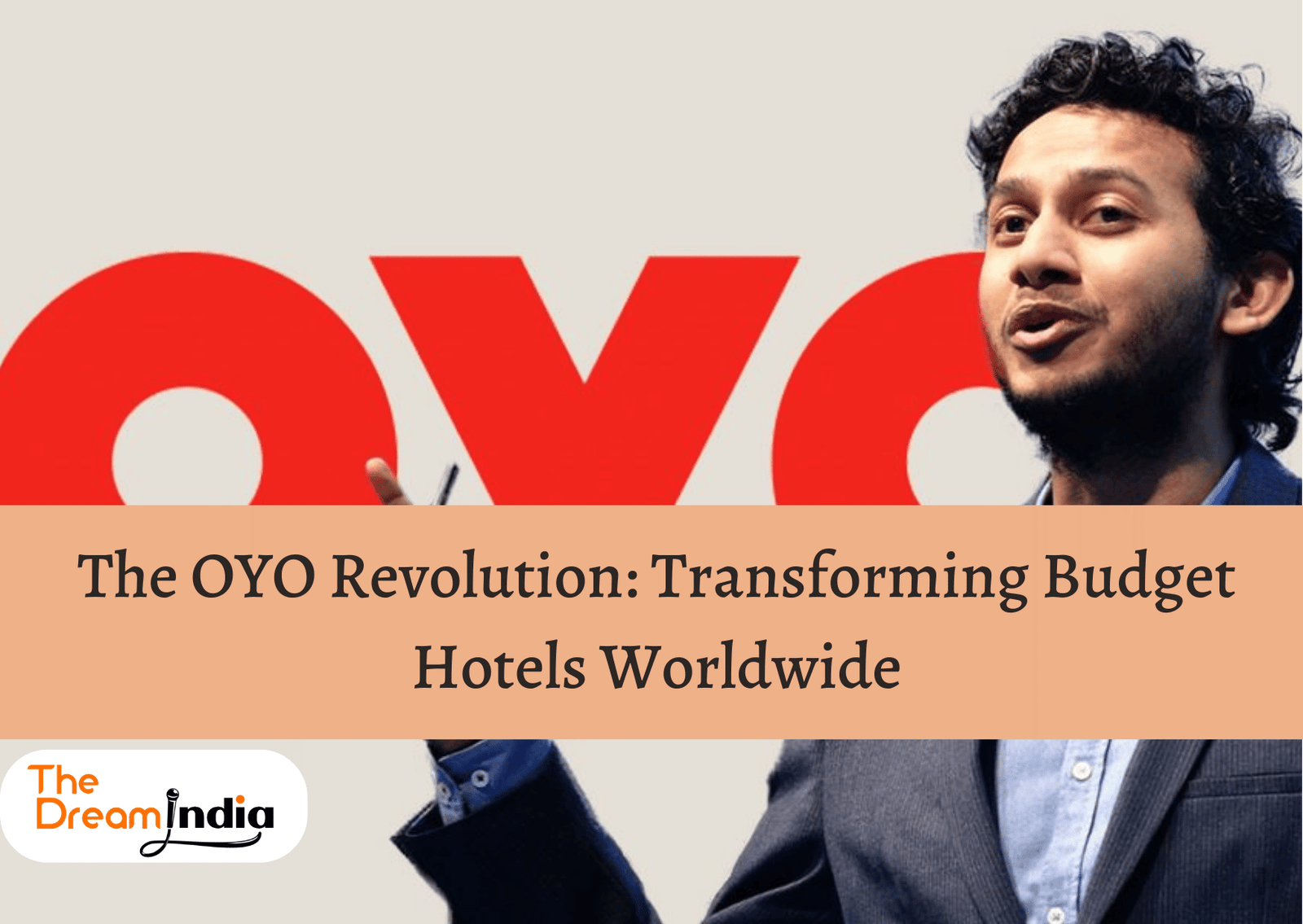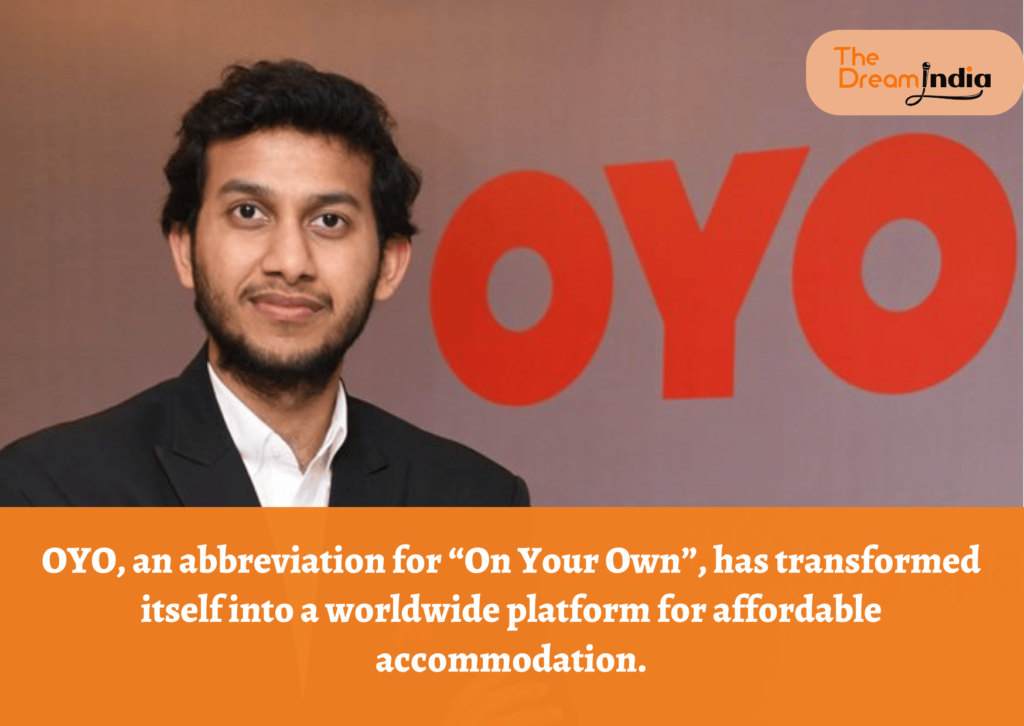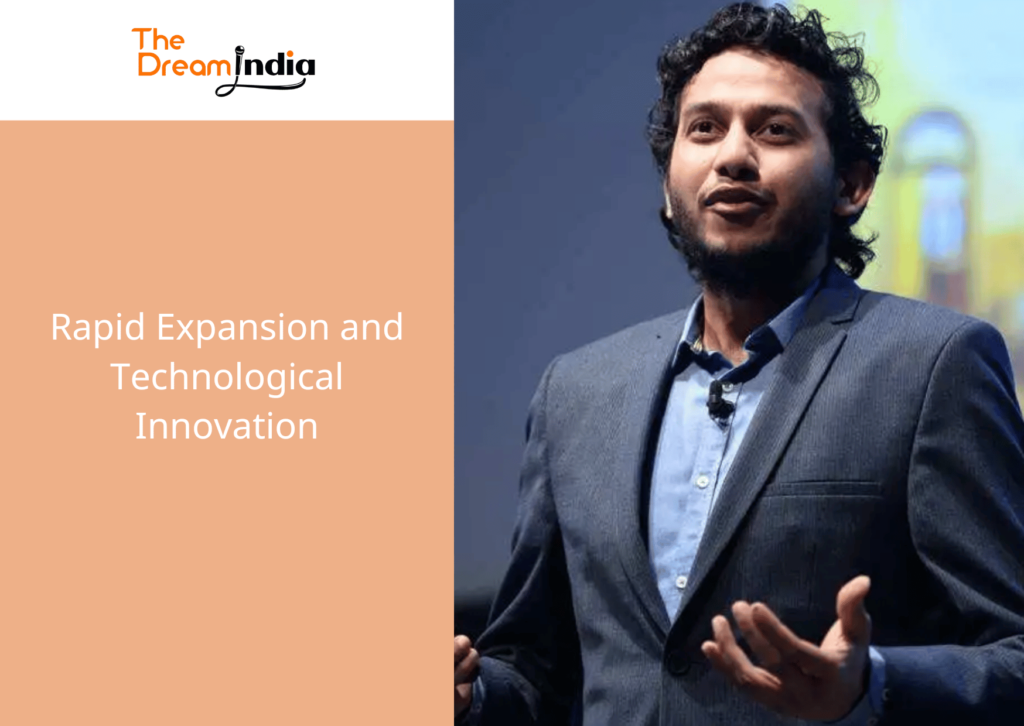
In India and beyond, OYO’s rapid success and extensive popularity reshaped and rebranded the whole hospitality industry. Prior to the arrival of OYO, the travel accommodation field was marked by uncertainty and a lack of efficiency.
Travel plans used to be so predictable it was never inconvenient if the system was complicated. The hospitality sector, more so in the budget segment, was widely unbranded and unorganized.
This led most travelers to book rooms without any idea of how good they would be, what facilities there would be like, or even whether they would have someone looking after them.
Budget-conscious travelers found the inconsistent experiences to be a major pain point. The uncertainties began to be addressed by the coming of the internet and a subsequent technological explosion.
Within this transformative period, various players have emerged in the space of hospitality technology. Companies such as Airbnb have changed the way people think about peer-to-peer accommodation, whereas businesses like FabHotels sought to bring sanity into cut-price lodging.
How did Ritesh Agarwal get the OYO idea?
OYO was founded by Ritesh Agarwal and has contributed significantly to its success. While traveling around India as a young backpacker, Agarwal kept encountering a single recurrent issue: cheap places to stay were of very different quality. A blunt truth about the budget hotel sector was revealed by his journey across the country. Despite being inexpensive, several places still didn’t meet the necessary standards.
A lot of times cleanliness, basic facilities, and even safety would be compromised however, there were also examples of hotels where the rooms were not only good enough but also at fair rates. This served as an indication that it was possible to have budget-friendly accommodation options of high standard.
Not only Agarwal but endless other people who moved became irritated by this lack of harmonyThe situation was even more serious in India because the tourism industry was growing at a fast pace yet its supporting infrastructure lagged behind.
The country was becoming a tourist hub, local and international tourists alike, however, there was a problem with the accommodation facilities not being enough and reliable enough for the affordability needed.
Agarwal conceived a bold and innovative idea as a consequence of recognizing this significant market gap. He dreamt of establishing a chain of hotels, which were cost-effective and travelers could count on.
In terms of budget hospitality, the primary problems that are faced include inconsistency in terms of services provided, low standard services, and the absence of trusted names within the low-cost range.
This idea was simple and had the potential to change things. In institutionalizing budget motels, Agarwal sought to remove the surprise in low-priced tours.
Travelers would know exactly what to expect, no matter what city they were visiting.OYO eventually came to be based on this concept.
A little bit about OYO

OYO, an abbreviation for “On Your Own”, has transformed itself into a worldwide platform for affordable accommodation.
The idea behind this company’s model is easy but still strong, offering budget-friendly and quality accommodations always. In essence, OYO runs as a platform where all franchised and leased hotels are listed.
The organization can grow its items quickly and still oversee visitors by using both methods.OYO may be able to help consumers who have different needs in terms of their living situations find a suitable place.
The company has a remarkable strategy for growth! What has really helped OYO in expanding rapidly is the way they market themselves and also their ability to plan ahead.
In just a short while, OYO has achieved a strong brand presence and is currently a common name in most of the areas where it is operational. In 2013, OYO was set up in Gurgaon, Haryana, India.
The age of OYO founder, Ritesh Agarwal, makes the OYO story particularly compelling, he was just 19 years old when he started the company.
This fact alone has made OYO a poster child for India’s burgeoning startup ecosystem and an inspiration for young entrepreneurs worldwide.
Since its inception, OYO has experienced exponential growth. In less than a decade, a small Indian startup has transformed into a global hospitality player by expanding its operations to numerous cities in several countries.
Over time, OYO’s services have also changed significantly. Whereas it initially emphasized standardizing budget hotels, OYO now offers several services.
Some of these comprise helping users to find residential homes, vacation rentals, short-term stays, and both long-term stays.OYO also ventured into the business travel sector to address diverse corporate travel needs.
OYO has been positioned as a flexible and adaptable player in the international hospitality market, thanks to this diversification of services.
With its offerings continually growing, OYO hopes to be the only place you need when it comes to finding any type of place to stay; and it will continue maintaining its position in the worldwide hotel sector.
The founders and team of OYO
Ritesh Agarwal, the company’s co-founder and Group CEO is steering OYO. As fascinating as the company he created is Agarwal’s journey.
Agarwal was born in Odisha, a state located on the eastern coast of India and he demonstrated a high spirit of enterprise from the time he was a child. His interest in business began in his early teenagers, which made him different from his friends.
This early entrepreneurship obsession would eventually prove significant in defining OYO’s consequent path. Ritesh dropped out of college to follow his entrepreneurial dreams. Although surreal to some, it shows how committed he is to his vision.
He was accepted into the well-known Thiel Fellowship program in 2013 after people noticed his potential. Founded by PayPal co-founder Peter Thiel, this program gives young businesspeople advice and capital to try new ideas that in regular educational establishments wouldn’t see the light of day.
Adjustments that Agarwal made during the Thiel Fellowship program and incidents in the previous year were fundamental for laying the foundation of what was to turn out as OYO.
He obtained a lot from interacting with startups in Silicon Valley and networking with mentors.
Agarwal’s success and specialization have continued to be recognized lately, as evidenced by his appointment to the panel of Sharks in Shark Tank India Season 3. Being the youngest shark on the show, he gives a new model and encourages inspiring a new age of Indian entrepreneurs.
OYO Startup Story

The start of OYO is a story about noticing things, coming up with new ideas, and doing them quickly.
Two years later in 2013, Ritesh Agarwal would find himself living in California and putting down the cornerstone of OYO which later proved to be a pivotal moment.
First, his ambition was to set up a single Indian hotel through a company named Oravel Stays. Thanks to its online campaigns targeting customers on a budget, the hotel has experienced an unprecedented rise in its occupancy rates.
In only one month, the occupancy increased from just a little bit less than 19% to a whopping 90%. This quick success was definitely a show of concept and also an indication of what Agarwal’s idea could be.
Upon returning to India, Agarwal’s vision expanded.
He did not just identify one hotel to refurbish but saw the possibility of lifting up the minimum standards of accommodation for the ordinary across India in particular, and the world in general.
This realization marked the true birth of OYO as we know it today. The core concept of OYO arose from Agarwal’s desire to create a win-win situation for both property owners and guests.
Most budget lodging does not have such things as intelligent enhancements, service optimization, or the introduction of dynamic rates but these were very important for the cheap hotels.
OYO’s strategy centered on understanding and catering to guest preferences. They focused on minute details that had a large effect such as the application of soft white lighting inside spaces with the result being superior customer satisfaction ratings and thus better reviews.
This attention to detail, combined with a guarantee of certain standards, began to set OYO apart in the market.
The company changed from managing only one property site to becoming a global hospitality network emphasizing customer satisfaction and profitability of their properties.
By consistently delivering on these fronts, OYO rapidly expanded its network of properties, setting the stage for its phenomenal growth.
How does OYO do business?
OYO’s business model represents a significant departure from traditional hospitality approaches. It stands as the first hotel chain to fully integrate Online Travel Agency (OTA) like distribution capabilities into its core operations.
Unlike conventional hotel chains that primarily focus on brand building, OYO’s approach is more practical and problem-solving-oriented. The company tackles real-world issues in the hospitality sector head-on, allowing brand development to occur organically as a result of its problem-solving efforts.
OYO functions as a reimagined hybrid in the hospitality industry. It skillfully blends technology and traditional hospitality practices to maximize customer satisfaction, optimize space utilization, and drive overall business success. This tech-enabled approach allows OYO to operate more efficiently than many traditional hotel chains.
The company’s commitment to customer satisfaction is evident in its stringent initial acceptance criteria for hotels joining the network. OYO often invests upfront in modernizing and standardizing each property before it’s inducted into the OYO network. This ensures that every OYO-branded hotel meets a certain standard, thereby maintaining consistency across the brand.
At its core, OYO’s primary advantage lies in its relentless focus on prioritizing customer needs. The company has shaped its entire business model around optimizing the customer experience. By effectively leveraging technology and hospitality best practices, OYO aims to improve not just space utilization, but overall business performance for its partner properties.
This customer-centric approach, combined with its tech-forward operations, has allowed OYO to disrupt the traditional hospitality industry and carve out a unique position for itself in the market.
Rapid Expansion and Technological Innovation

One of the significant differences between OYO and other hotel chains that use technology is the degree of utilization of technology. The company, captained by Ritesh Agarwal, created an effective mobile app that streamlined the process of booking a room for its clients.
They developed clever backend systems at the same time, systems that made it possible for hotel owners to run their businesses more effectively.OYO’s rapid expansion was attributed to this advanced approach, aggressive marketing strategies as well as competitive pricing.
In just two years of integrating, the company partnered with thousands of hotels in different Indian towns in an unusual industry growth engendered. The attention of major investors was caught by OYO’s innovative model and rapid growth.
In 2015, the company got a major investment round from top-tier venture capital companies like Lightspeed Venture Partners, Sequoia Capital, and Greenoaks Capital.
This flow of funds has given OYO the chance to speed up its targeting plans and upgrade its technology to the best specifications.
OYO Looking to the Future
As OYO enters 2024, the company embraces new opportunities while facing past pandemic effects.
The company has shown an unusually great ability to jump back after getting knocked down, adjusting what it does so that it is in harmony with changes in how products are bought, and shifts in what is considered good.
In light of those changes, OYO has re-aligned efforts on essential markets and services, prioritizing profits over pursuing growth by all means possible.
OYO evolved from a standalone establishment in Gurgaon into a global hospitality firm through fast expansion, use of technology, and facing major bottlenecks.
The future of the hospitality industry remains uncertain in many ways, but OYO’s impact on the budget hospitality sector is undeniable.





